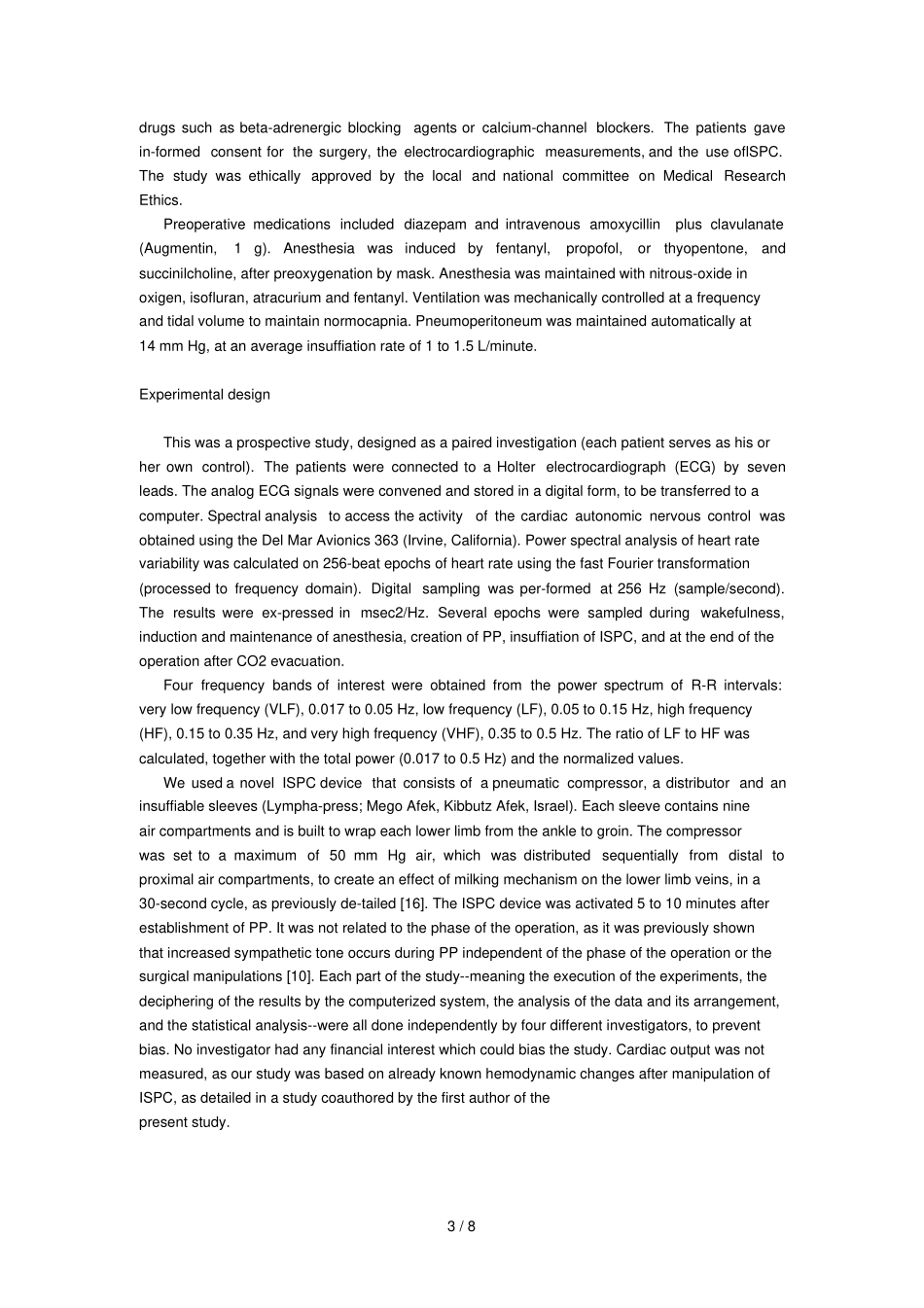1 / 8 术前应用 IPC 预防 DVT 的血流灌注The American Journal of Surgery 187 (2004) 124-127 Brief report Improving the adverse changes in cardiac autonomic nervous control during laparoscopic surgery, using an intermittent sequential pneumatic compression device Amitai Bickel, M.D.a,d,*, Malka Yahalom, M.D.D.Scb, Nathan Roguin, M.D. Shimon Ivry, M.D.c, Jona Breslava, M.D.b, Roman Frankel, M.D.c, Arie Eitan, M.D.aDepartment of Surgery, Western Galilee Hospital, Nahariya, Faculty of Medicine, Technion, Israel Institute of Technology, Haifa, Israel Department o[' Cardiology, Western Galilee Hospital, Nahariya, Faculty of Medicine, Technion, Israel Institute of Technology, Haifa, Israel Department of Anesthesiology, WesternGalileeHospital, Nahariya, Faculty of Medicine, Technion, Israel Institute of Technology, Hat[a, Israel Department of Surgery, WesternGalileeHospital, P.O. Box 21, 22100, Nahariya, Israel Manuscript received November 5, 2002; revised manuscript February 24, 2003 Presented at the 10th lnternational Congress of the European Association of Endoscopic Surgery, Lisbon, Portugal, June 2-5, 2002 Abstract Background: The creation of positive pressure pneumoperitoneum (PP) may lead to adverse cardiovascular effects during laparoscopic operations. It can also lead to increased sympathetic cardiac activity, that might have serious consequences. We hypothesized that by reversing the hemodynamic effects, the use of intermittent sequential pneumatic compression device (Lympha~press) on the lower extremities would lead to improved cardiac autonomic control. Methods: This was a prospective cohort study, in which patients served as their own control. Fifteen patients without cardiorespiratory disease undergoing elective laparoscopic cholecystecto...


